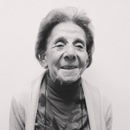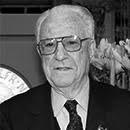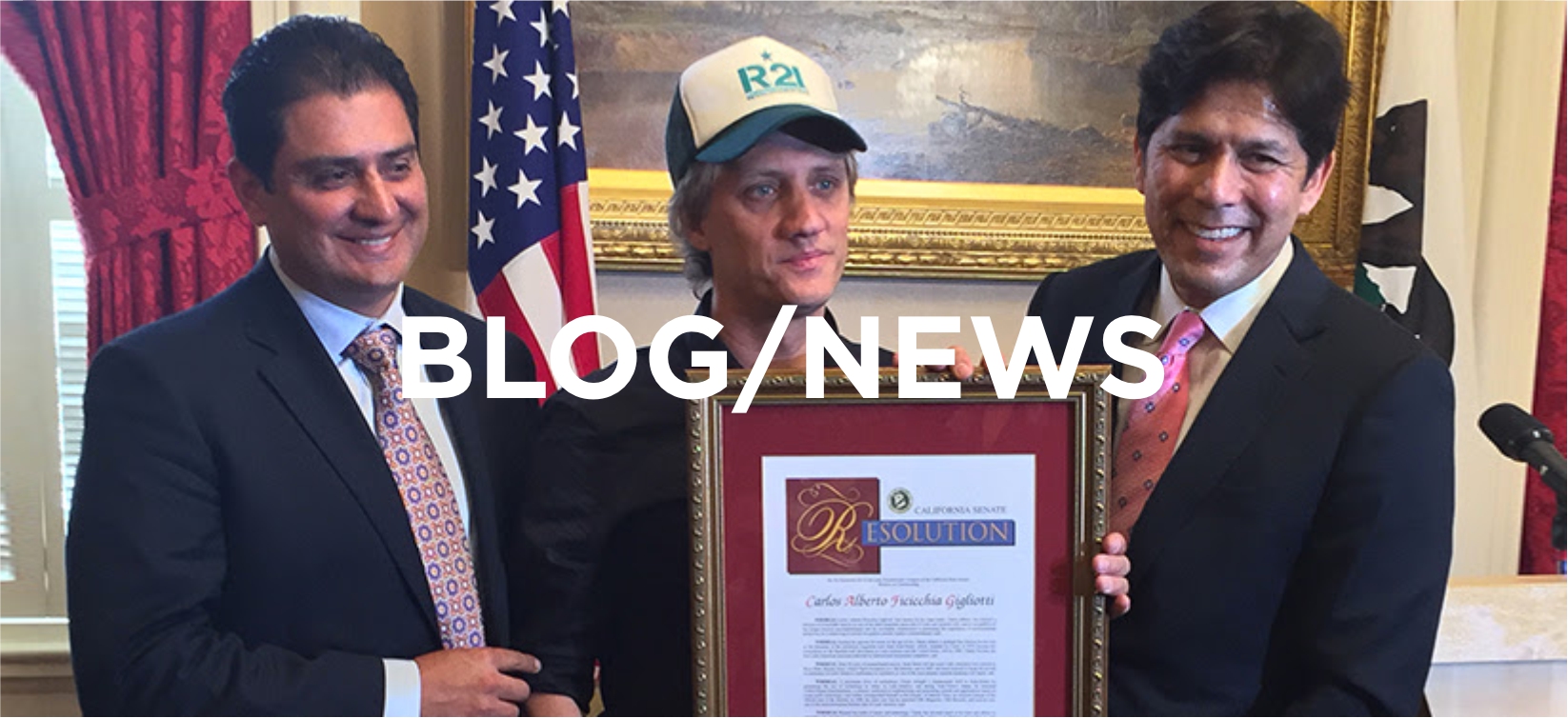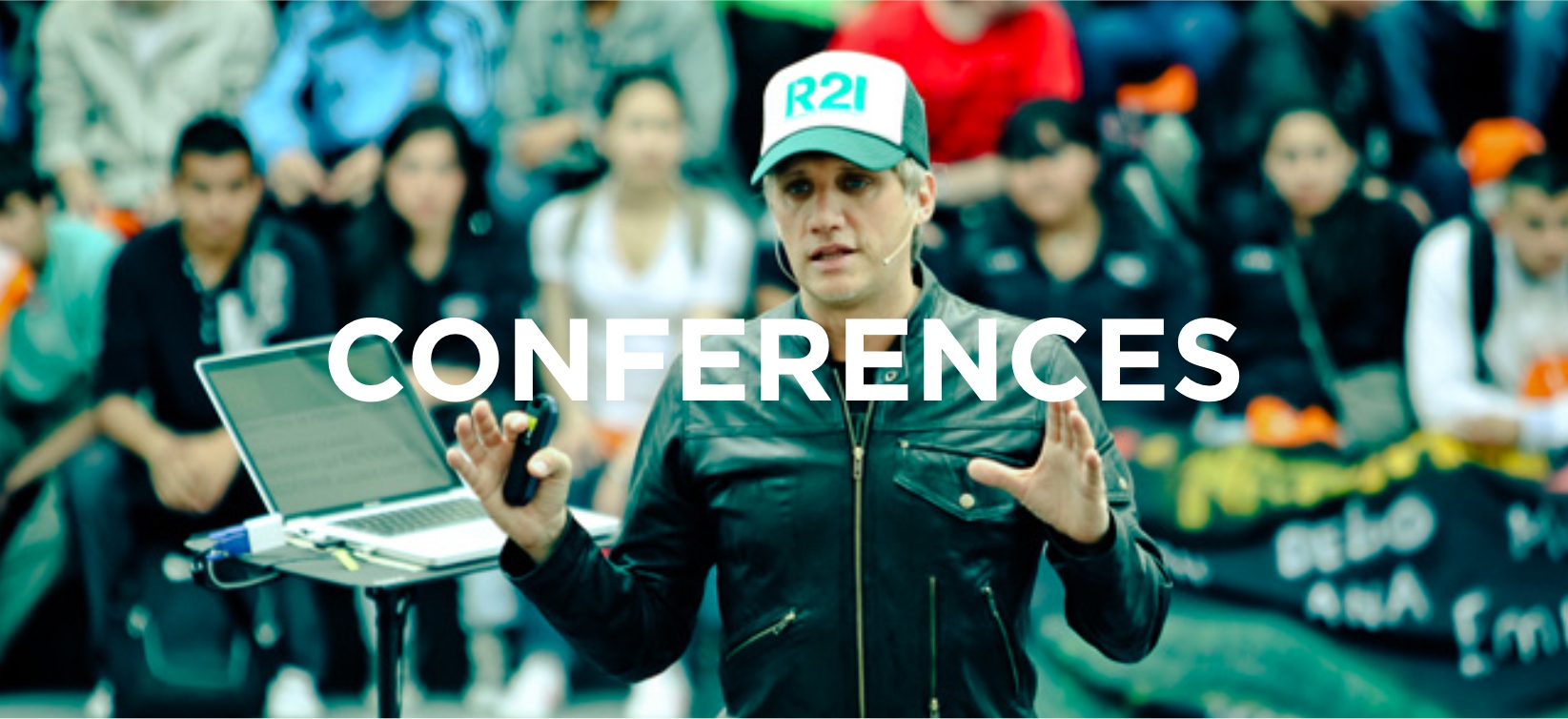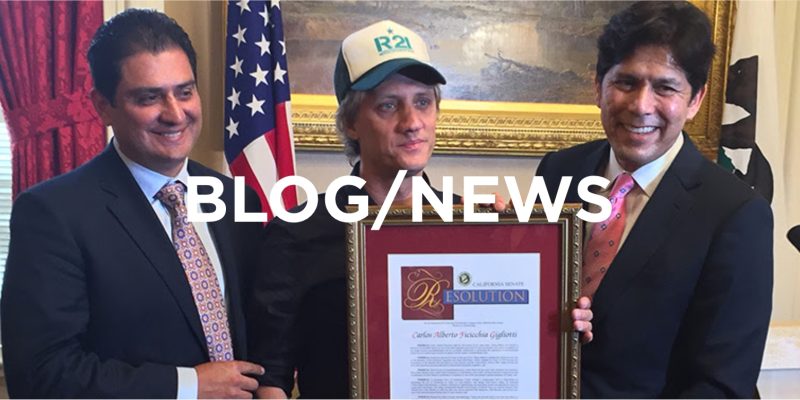WE ARE
REVOLUTION 21
R21 was founded by Charly Alberti after understanding the depth of the climate crisis and the challenges and opportunities it presents for Latin America. The renowned musician decided to launch his own foundation to spread the global environmental crisis, taking advantage of his ability to reach millions of people.
The R21 Executive Team is made up of a group of consecrated professionals in their respective areas of expertise. Each of them shares the founder's vision of a sustainable future. Together, they work passionately to spread and educate about the global environmental crisis and help find solutions.
R21 also has three boards of excellence made up of the most prestigious scientists, businessmen, and politicians in Latin America and the world. These professionals provide their support and knowledge, helping to design effective strategies.
MISSION
CONTRIBUTE TO THE SUSTAINABLE DEVELOPMENT OF LATIN AMERICA, STARTING FROM EDUCATION ON GLOBAL ENVIRONMENTAL CHANGE AND THE GENERATION OF MITIGATION AND ADAPTATION ACTIONS THAT PROVE THAT IT IS POSSIBLE TO BUILD A LATIN AMERICA THAT GROWS, REVALUATES ITS NATURAL AND PRESERVES SUSTAINABILITY.
VIEW
WE DREAM OF A LATIN AMERICA THAT DEVELOPS IN A SUSTAINABLE WAY FROM THE USE OF BOTH ITS HUMAN AND NATURAL WEALTH, BECOMING AN EXAMPLE OF SUSTAINABLE GROWTH, SOCIAL INTEGRATION, AND PROTECTION OF THE ENVIRONMENT.

CHARLY ALBERTI
Founder/CEO
But in addition to being an established musician, Alberti is also a pioneer in the implementation of technology in music. For his avant-garde projects from the ’90s (Yeyeye; Cybrel Digital Entertainment; URL Magazine) and for being the inventor of Internet Time (the concept of Internet time), Charly was recognized by CNN as one of the ten most important figures on the Internet from Latin America. His achievements led him to be chosen by Steve Jobs as the only Spanish-speaking Apple Master in the entire history of Apple Computers.
After a lifetime of achievement, Charly decided to dedicate himself to his great passion: ecology. Therefore, after a time of collaborating with Argentine National Parks, in 2008 he joined Al Gore, Nobel Peace Prize, to raise awareness about global warming. Charly’s participation was key to spreading the message in Latin America since his presence allowed it to reach millions of people.
However, over time and seeing the challenges and opportunities in Latin America, Charly understood that the region needed actions and communications tailored to its problems. That is why he decided to launch his own foundation, to channel his creativity, passion, and alternative vision of the future towards the goal of collaborating in raising awareness of the global environmental crisis. Nobody better than him, with his vast knowledge of the region thanks to 20 years of endless tours, to carry out this project.
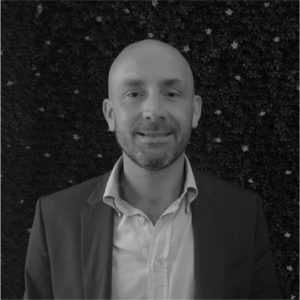
RODRIGO RODRIGUEZ TORNQUIST
Executive Director
Rodrigo is an expert in sustainable development and climate change policies and planning. He holds a bachelor’s degree in Political Science with specialization in International Affairs (Catholic University of Argentina), a degree in Public Policy (University of San Andrés) and in environmental management (National University of San Martin). Research Fellow at the Massachusetts Institute of Technology (MIT) Special Program on Urban and Regional Studies (2013-2014). Former President of the Low Emissions Development Strategies for Latin America and the Caribbean platform (2016-2017) and Chair of the UN’s global 10 Year Framework of Programs for SDG 12 – Sustainable consumption and production (2020-2021). Also, he was a board member of the UN’s International Resource Panel- IRP (2016-2017 and 2020-2022). He has experience in transport, waste management, energy and climate change policies and projects.
Nowadays is the Executive Director of Revolution 21 Foundation and professor at the National University of San Martin (UNSAM), Catholic University of Argentina (UCA) and Technological Institute of Buenos Aires (ITBA).
During the last years, he was a consultant of several international organizations such as IADB, World Bank, UNEP, GIZ and CAF-Development Bank of LAC.
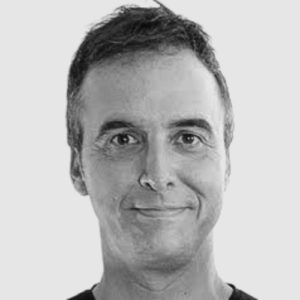
DIEGO SAENZ
Executive VP.
Between 1991 and 1998, he worked with the film music composer Osvaldo Montes for whom he recorded and mixed the original music of films and telefilms in Argentina and Canada (Tango Feroz, Cenizas del Paraíso, Una sombra ya soon serás, Plata quemada, The dark side of the heart, Little Miracles, Alys Roby, Human Race, Olympica, Le ciel sur tete, among others).
Throughout his career, he has been awarded numerous awards, including several Carlos Gardel Awards (Argentina), and nominated as Best Producer of the year for the 2001 Latin Grammys.
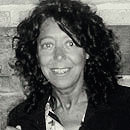
PATRICIA HIMSCHOOT
She began her scientific career and completed her doctoral thesis on mathematical models of the epidemiology and control of Chagas disease applying chaos theory to the dynamics of animal populations. These works earned him the Prize of the National Academy of Medicine.
As part of her training, she completed postgraduate studies and taught courses in Biostatistics at Cornell University, NY, USA.
She has worked as a consultant for the IDB designing and implementing the National Environmental Information System, a task that led her to be appointed Coordinator of said System in the Secretariat of Environment and Sustainable Development of Argentina.
At the international level, she has been part of the Executing Unit of the United Nations Binational Project (Argentina-Uruguay) for the Environmental Protection of the Río de la Plata (FREPLATA).
Patricia has served as a university teacher in both undergraduate and graduate degrees.
In 2004 she was incorporated into the Argentine Academy of Environmental Sciences, currently, she is one of its youngest members.
Among her achievements is the implementation of information systems for environmental management, the formation of work networks at the binational, provincial and municipal levels; and the development and execution of various environmental projects.
Eduard Muller
Costa Rica
Academic, researcher and disseminator of the fields of educational innovation and regenerative development, Founder and rector of UCI with extensive international experience, having carried out professional activities in more than 40 countries on all continents. He is globally recognized for his leadership in Regenerative Development, having established Regenerate Costa Rica in 2018, an initiative to make Costa Rica the first actively regenerative country, integrating the environmental, social, economic, cultural, political and spiritual. He has delivered more than 300 lectures reaching tens of thousands of people in more than 60 countries in recent years. He co-directs the joint initiative for the regeneration of Costa Rica and New Zealand with the support of Common Earth, attached to the Commonwealth. Member of the World Intellectual Forum, India, Principal Professor of the UNESCO Chair of Biosphere Reserves and Natural and Mixed Heritage Sites at the UCI. He is also a member of the Global Council of the Wellbeing Economy Alliance – WEAll and of the Regenerative Communities Network and a member of the advisory committee of The Carbon Underground. He was a member of the Scientific Council on Climate Change of Costa Rica
Ezequiel Ezcurra
Argentina – México
Agricultural Engineer from the University of Buenos Aires and Doctor in Ecological Sciences from the University College of Wales, Great Britain.
He currently serves as Director of the Institute For Mexico and the United States (UC Mexus) of the University of California; and as Professor of Ecology in the Department of Botany and Plant Sciences, working on conservation, ecology and biogeography of coastal deserts, land-ocean interactions and their impact on marine and terrestrial environments, the application of mathematical models in ecology and conservation, and the management of natural resources in areas under conditions of traditional use.
Previously, he served as Director of the Biodiversity Research Center of the Californias at the San Diego Museum of Natural History; as Director of the National Institute of Ecology of the Secretariat of Environment and Natural Resources (Semarnat) of Mexico; and as a researcher at the National Autonomous University of Mexico (UNAM). He continues to act as an advisor to the Museum’s Scientific Staff and is part of the Research Committee and the Binational Steering Committee of the Museum.
For several years Exequiel focused on building partnerships to increase scientific cooperation along the Mexican-North American border, resulting in various programs for the recovery of endangered trans-border species and the publication of books that describe the particular ecology of the Baja California / Southern California region.
For his work promoting conservation in Mexico, he was awarded the ‘Julian Hayden’ Award by the Sonora Alliance, the PRONATURA Recognition for Conservation and the Biological Conservation Award from the International Society for Biological Conservation.
He has lectured at various universities in Mexico, Argentina, and Uruguay. A prolific writer, Exequiel has published more than fifty research articles in international journals, fourteen book chapters and two books on the ecology of the Basin of Mexico, and a large number of essays and articles for popular newspapers and magazines.
Roberto Acosta
Cuba
Chemical Engineer and Doctor of Technical Sciences (Ph.D).
He worked in the secretariat of the United Nations Framework Convention on Climate Change, being the Coordinator of the Adaptation, Technology and Science Program for the last four years.
Lead Author of the Fifth Assessment Report of the Intergovernmental Group of Experts on Climate Change (IPCC), having been Coordinating Lead Author of the second report in the contribution on adaptation.
Ana Rosa Moreno
México
Since 1995, Ana Rosa was the lead author of the United Nations Intergovernmental Panel on Climate Change (IPCC). She currently works as a consultant on issues of climate change, public health, risk communication and environmental health in various United Nations agencies and other prestigious international institutions. He also directed environmental and health projects for North American and European agencies, such as the Environmental Information Cooperative for the World Bank in 2000.
She is the author of various national and international publications and stands out as Contributing Author of the Second Report and Leading Author of the Third and Fourth Reports of the Latin America Chapter, as well as Reviewer of the North America Chapter of the Fifth IPCC Assessment Report; co-author of the Challenges and Opportunities Chapter of the GEO 4 Report and the GEO-Health (UNEP / PAHO); Author of six chapters of the GEO-5 report and reviewer of GEO 6. In addition, she published various studies on climate change and health, particularly for the Latin American region.
She was Secretary of the College of Biologists of Mexico and a member of Who’s Who International. Ana Rosa also has great professional development in the official sector, academic sector and in international organizations.
Currently, she is also a Member of the Mexican Society of Public Health, and a professor in the Department of Public Health of the Faculty of Medicine of the Autonomous University of Mexico (UNAM).
Cristina Tirado
España
Veterinary Doctor of the University of Zaragosa; Master and Doctor in Natural Resources and Environmental Sciences (Cornell University, USA).
Prepared the report on the consequences that global Climate Change may have on food health from the Rome office of the World Health Organization (WHO)
She currently works as a Researcher and Associate Professor at the School of Public Health of the University of California, Los Angeles, USA, focusing on adaptation strategies for health, water, food and nutritional security in relation to climate change; the development of nutrition indicators for adaptation to climate change and risk-benefit assessments and analysis.
He has participated in international research and policy formulation programs working for the United Nations, International Governmental and Non-Governmental Organizations, and Universities in countries in Europe, Central Asia, North Africa, the Middle East, South Asia and America. It has helped assist the governments of more than 70 countries in developing food security and nutrition; emergency preparedness and response plans; and the establishment of institutional and legal frameworks for biosafety.
Previously, she has served as Coordinator of the WHO Surveillance Program for foodborne diseases in Europe at the Federal Institute for Risk Assessment – FAO / WHO Collaborating Center for Research and Training on Food Hygiene and Zoonosis, Berlin, Germany; and as Regional Advisor for Europe of the WHO European Center for Environment and Health (Rome, Italy).
He has contributed as the author of the Health chapter of the Fourth Assessment Report of the Intergovernmental Panel on Climate Change (IPCC) and developed the main policy documents for the FAO High-Level Conference on Climate Change, Food Security and Bioenergy.
Alicia Villamizar
Venezuela
Currently she works as Director of the Institute of Natural Resources of the USB, Coordinator of Multidisciplinary Groups in Environmental Projects and scientific head of the Vegetation aspect and scientific co-responsible for the Land Use aspect. Participates in several research projects, on Environmental Risks, analysis of the legislation of coastal environments in Latin America; Vulnerability of the Venezuelan coast to rising sea levels. It also participates in awareness and training projects, domestic solid waste management and vulnerability reduction with local communities.
Alicia is Lead Author on the Intergovernmental Panel on Climate Change (IPCC) since 1998.
She has worked as a researcher on issues of environmental impact, mangrove and coastal wetland ecology, geographical history of landscapes, and climate change (impacts, vulnerability and adaptation). As an advisor, she has carried out several environmental evaluations in Guatemala, and Panama, and at the national level in projects related to British Petroleum, and Government Organizations for the Environment and Science and Technology. She has also served as technical advisor in the Integration of Adaptation to Climate Change project, for the Formulation of Projects for the Economic Commission for Latin America and the Caribbean (ECLAC).
He is a Member of the Advisory Council of the Biological Sciences Division of the USB and Founding Member of the Academic Committee of the Free Chair on Climate Change.
Author of several publications, including those on Climate Change and Poverty; and Impact, vulnerability and adaptation to climate change, with special emphasis on Latin America and the Caribbean.
He has received several distinctions in his career, such as the 2000 CONABA Award for Meritorious Professors and the 2010 Conservation Prize The Golden Palm.
Rodolfo Dirzo
México
He is currently Professor in the Department of Biology at Stanford University and Director of the Center for Latin American Studies at the same University. Committed to teaching at undergraduate and graduate levels in both the United States and Latin America, he is also dedicated to teaching science to children and the general public through the educational program ‘Ecology: learning by doing’, both in California and in Yucatán.
His scientific work focuses on the study of ecological and evolutionary relationships between plants and animals; and the impact of human activities on natural ecosystems, and the consequences of these impacts for society in general.
His most recent work includes a publication on the global magnitude of animal extinction (‘defaunation’), its effects on plant diversity, and on the risk of human disease. Most of his work is carried out in the tropical ecosystems of Latin America, especially in Mexico, and more recently in Africa.
He is a member of the Mexican Academy of Sciences, the US National Academy of Sciences, the American Academy of Arts and Sciences, and the California Academy of Sciences. He has been distinguished with the Award for Merits in Ecology from the President of Mexico.
Victoria Lichtschein
Argentina
In recent years, she was Director of Wild Fauna and Flora and Biodiversity Conservation Coordinator of the Secretariat for the Environment and Sustainable Development, currently serving as advisor on biodiversity issues for said institution.
He has taught several courses on Management, Conservation and Control of Species Subjected to International Trade in the Master’s Degree in the same name at the International University of Andalusia, Spain.
He has several published works on benthic communities, and population dynamics of marine birds and mammals (penguin and southern right whale).
He has participated as a member of the Argentine Delegation in the United Nations Conference on Environment and Development (Rio 92), in several of the Conferences of the Parties (COPs) of the Convention on Biological Diversity, at the Summit World Conference on Sustainable Development; and in the International Whaling Commission. She has served as Head of Delegation in various Conferences of the Parties to the Convention on International Trade in Endangered Species of Wild Fauna and Flora (CITES); and was appointed Representative for the Region of South, Central America and the Caribbean in the Permanent Committee of the CITES Convention.
She has recently been distinguished as a Full Member of the Argentine Academy of Environmental Sciences.
Ricardo Villalba
Argentina
He currently works as Director of the Argentine Institute of Nivology, Glaciology and Environmental Sciences (IANIGLA), in Mendoza, being Principal Investigator of the National Council for Scientific and Technical Research (CONICET).
His areas of work are climate change, dendrochronology, environmental history, paleoclimatology, Andean ecology, and water resources.
He is a Professor at the Faculty of Forest Sciences, Universidad Austral de Chile, Valdivia. He has taught courses of his specialty at the National University of Comahue, Neuquén; in the Scientific-Technological Center of Mendoza, Argentina; at the International University of Andalusia, Spain; at the Universidad Mayor de San Andrés, Bolivia; at the Austral University of Chile, and at the University of Concepción, Chile.
Invited author for the preparation of the Fourth Document of the Intergovernmental Panel on Climate Change, IPCC.
On several occasions he received internal scholarships from IANIGLA and CONICET, external scholarships from the Government of the Netherlands, the Argentine-North American Fulbright Commission, the American Space Agency (NASA), and the Lamont-Doherty Earth Observatory, Columbia University. He has received subsidies from the National Forest Institute, from CONICET; the Antorchas Foundation and the National Agency for Scientific and Technological Promotion of Argentina (ANPCyT); from the FONDECYT of Chile; from the Graduate School and the Department of Spanish and Portuguese; from the University of Colorado; from NASA and the National Geography Society of the United States; and the Inter-American Institute for the Study of Global Change (IAI).
He has made more than 210 scientific presentations in Argentina, the United States, Canada, Brazil, Italy, Switzerland, Chile, China, Ecuador, Venezuela, Peru, Bolivia, Uruguay and New Zealand. Author of 160 scientific papers published in national and international book chapters and magazines.
Juan Armesto
Chile
He has been distinguished with the Angel Faivovich Cultural Award; the Latin American Award in Science and Technology ‘Manuel Noriega Morales’, from the Organization of American States; the Mercer Award from the Ecological Society of America, USA; the John Simon Guggenheim Memorial Fellowship, USA; and the Presidential Chair in Sciences award.
His main topics of interest are forest ecology; the conservation of biodiversity in forests; nutrient cycles in mature forests; mutualistic interactions between plants and animals; climate change and ecosystems.
His current research addresses the challenge of achieving biocultural conservation and offering practical guidelines for the sustainable management of ecosystems in the temperate forests of South America, and includes long-term field experiments on the effects of climate change, mutualistic interactions between plants. and animals and their relationship with seed dispersal and pollination in rural areas; comparison of soil processes in managed and unmanaged forests; the analysis of forest dynamics at different temporal and spatial scales; and the effective translation of science into politics.
As a result of his research work, he has made hundreds of publications in national and international journals.
Jaime Cantera Kintz
Colombia
He currently works as Dean of the Faculty of Exact and Natural Sciences of the Universidad del Valle; and previously as Vice-dean of Research, Director of Postgraduate Programs, and Head of the Department of Biology. In 1991 he was appointed ‘Professor Emeritus’ at the Universidad del Valle for his work on marine invertebrates and marine ecosystems such as estuaries, mangroves and coral reefs.
He has directed and directs various research groups on issues of marine biodiversity, protected areas, coastal ecosystems, El Niño phenomenon, coral reefs, mangroves, estuaries, among other topics; and has hundreds of publications on these topics.
He is a member of the Colombian Academy of Exact, Physical and Natural Sciences and has received important awards for his work as an ecologist.
His work as International Coordinator of the United Nations Binational Project (Argentina-Uruguay) for the Environmental Protection of the Río de la Plata and its Maritime Front (FREPLATA) left important products such as the Transboundary Diagnostic Analysis of said estuary.
Eduardo Calvo Buendía
Perú
Actualmente es miembro de la Junta Directiva del IPCC y Vicepresidente del grupo de Trabajo III del Panel Intergubernamental de Cambio Climático y trabaja en temas de cambio climático desde 1996. Es Asesor de la Dirección General de Medio Ambiente del Ministerio de Relaciones Exteriores del Perú. Es Profesor Asociado de la Facultad de Química e Ingeniería Química de la Universidad Nacional Mayor de San Marco, Perú.
Ha sido Director de Conservación Internacional-Perú; asesor en temas ambientales de los Ministerios de Agricultura del Perú y Vivienda; consultor del Banco Mundial, del Banco Interamericano de Desarrollo, de la Secretaría de la Convención Marco de Naciones Unidas sobre Cambio Climático y de la FAO, entre otros.
En múltiples ocasiones desde 1997 ha sido negociador por el Perú, la más reciente en la XV Conferencia de las Partes en Copenhague, Dinamarca. Ha coordinado la preparación parcial del Inventario de Gases de Efecto Invernadero de la Primera Comunicación Nacional del Perú sobre Cambio Climático y ha sido revisor del mismo Inventario de la Segunda Comunicación Nacional del Perú.
Es miembro del Consejo Directivo de la Sociedad Química del Perú y de la Academia Peruana de Salud.
Walter Bathgen
Uruguay
Actualmente se desempeña como Director del Programa Regional para América Latina y el Caribe del IRI (International Research Institute for Climate and Society) de la Universidad de Columbia, Nueva York, EEUU. En el IRI Baethgen ha venido estableciendo programas regionales de investigación, educación y entrenamiento orientados a mejorar la evaluación y la gestión de riesgos climáticos en la producción agropecuaria, los recursos hídricos, la salud humana y los desastres. Desde 2010 ha actuado como Lead Scholar del programa NEXUS de la Fundación Fulbright que procura acercar a la comunidad científica con la comunidad encargada de elaborar políticas públicas.
Antes de incorporarse al IRI Baethgen fue Científico Principal de la División de Investigación y Desarrollo del IFDC (International Soil Fertility and Agricultural Development Center, Alabama), trabajando en Sistemas de Información y Soporte para la Toma de Decisiones para la agricultura y la forestación, y estableciendo proyectos en América Latina, Norte de África y Cercano Oriente.
Baethgen ha sido tutor de varios postdoctorados (Universidad de Columbia), y ha formado parte de comités de doctorado, maestría y de grado en la Universidad de la República (Uruguay), en la Universidad de Columbia (Nueva York), y en la Universidad de Buenos Aires.
Se ha desempeñado como consultor en proyectos de investigación y desarrollo para NASA, BID, Banco Mundial, PNUD, ONUDI, FAO, IAEA, IICA, y para los gobiernos de Brasil, Paraguay, Guatemala y Uruguay. También ha actuado como asesor para empresas del sector privado de Argentina, Uruguay y Venezuela. Integra o ha integrado varios comités científicos internacionales incluyendo el CGIAR, IAI, IGBP, NSF, OMM, y el CIIFEN. Ha actuado como revisor de varios programas Internacionales (IAI, NOAA, NASA, Gobierno de Alemania, Gobierno de Noruega).
Fue autor principal en el segundo y tercer informe del Panel Intergubernamental para el Cambio Climático (IPCC), y autor contribuyente para el cuarto informe; actuando también como Editor del informe especial del IPCC sobre Transferencia Tecnológica.
En 2010 recibió el premio Morsoli de Oro por su trabajo realizado en América Latina.
Pablo Canziani
Argentina
Visiting scientist at the University of Washington (1992-1994) as a member of the Science team of NASA’s Upper Atmospheric Research Satellite Mission. He has integrated, or collaborated, with scientific teams of various international satellite missions for the observation of the Atmosphere.
Author of more than 60 national and international refereed works. Member of the CONICET Scientific Researcher Career. He has served as Adjunct Professor at the National University of La Plata and the National Technological University. He is currently Professor and Researcher at the Pontificia Universidad Católica Argentina and Director of the Interdisciplinary Team for the Study of Atmospheric Processes in Glottal Change (PEPACG). He has actively participated in the training of scientific professionals on the subject of the atmosphere. Member of international committees on atmosphere and climate, he has directed several doctoral thesis.
He has participated as co-author in several international reports of the United Nations on the state of the ozone layer as well as in the activities of the Intergovernmental Panel on Climate Change, IPCC, integrating the scientific team awarded the 2007 Nobel Peace Prize. He has received on several occasions distinctions for his professional work, among them the Silver Medal of the Pontificate, Diplomas of Recognition from NASA and the Diploma of Honor from the Culture Commission of the Honorable Chamber of Senators of the Nation, among others.
Responsible for the Environment Area of the National Lay Network, Argentine Episcopal Conference. Observer of the Holy See in meetings of the United Nations Convention to Combat Desertification and member of the Council of Notables of the Higher Council of Catholic Education.
Roy Garcia
Pedro Tarak
Dra Yolanda Ortiz
Dr. Yolanda Ortiz (1926-2019)
Yolanda Ortíz was born in San Miguel de Tucumán, where she lived until her departure to Buenos Aires at the age of 18.
Yolanda began her studies in Chemistry at the University of Buenos Aires, as well as French studies that will later allow her to win a scholarship to France that would change her life.
In her years as a university student, she was a fervent political activist, first in Catholic Action, where she stood out for her vocation of service. Then he militates in the Christian Democracy. It is noted that her activities and studies were not common for a woman in her time, which places her at the forefront of gender claims.
In the year 1967-1968 he carried out studies of contamination and industrial toxicology in the Central Paris laboratory, that same year he traveled to the United States to carry out Environmental studies in Official Institutes of New York, New Jersey, Cincinnati, Pittsburgh and Los Angeles dependent of the Department Of Health Welfare.
In 1969 he carried out studies of contamination by pesticide residues in the Department of Medicine of the Hebrew University of Jerusalem.
In 1973 the President of the Nation Juan Domingo Perón, summoned her to occupy the position of First Secretary of State for Natural Resources and Human Environment of the Nation. Perón wanted that position in the National Cabinet for a woman and Yolanda fulfilled all the professional and political attributes required.
Initiator of environmental issues at the state level, its management area comprised the Undersecretaries of Water Resources, Renewable Natural Resources and Mining and, during its mandate, the Undersecretary of Human Environment was created, with which that Secretary of State constituted the first body environment with a comprehensive approach to Latin America.
Since the Presidency of the CAMBIAR Association and as a Professional, to date she has served the community as a scientific, political and technical advisor.
He has fought tirelessly in pursuit of poverty alleviation and in locating environmental issues not as just another problem but as “the problem”.
Its axis of struggle is training and education as a tool in understanding the true mental revolution of men, especially in leaders, in a modification of social and productive structures.
Her last active participation was as ad honorem advisor to the National Secretariat for the Environment and Sustainable Development on the subject of mountain ecosystems, to the Ministry of Foreign Affairs, International Trade and Worship in the Directorate of Environmental Affairs and the Federal Council for the Environment. Atmosphere.
In November 2020, the Chamber of Deputies of the Argentine Nation sanctioned National Law No. 27592, which is known as “Yolanda Law” in tribute to her great legacy as the first Secretary of Natural Resources and Human Environment of Argentina, Yolanda Ortiz.
His legacy, vision and love will last forever with us.
Osvaldo Canziani
Osvaldo Canziani was an internationally recognized Argentine climatologist and meteorologist. He trained as Professor of Physics (INPS), M.Sc in Meteorology (Imperial College of Science and Technology, University of London) and Doctor of Meteorology (University of Buenos Aires). He was one of the great researchers of climate change
In 2007 he received the Nobel Peace Prize alongside Al Gore for his work as Co-Chair of Working Group II of the Intergovernmental Panel on Climate Change (IPCC). In addition to being a researcher at the IPCC, he was a researcher for Conicet and carried out technical assistance tasks in various United Nations agencies, holding the positions of UNDP Representative and WMO Regional Director for Latin America and the Caribbean.
Canziani also stood out as a professor at the most important universities in Argentina and a lecturer at universities in Latin America and the United States. He founded the Institute for Studies and Research on the Environment (IEIMA) and acted in various environmental non-governmental organizations. He was the author of more than a hundred research papers and studies on weather and climate, air pollution and hydrometeorology.
Dr Canziani served as Chairman of the R21 Board of Scientists until his death in 2015.
CHARLY ALBERTI
Founder/CEO
But in addition to being an established musician, Alberti is also a pioneer in the implementation of technology in music. For his avant-garde projects from the ’90s (Yeyeye; Cybrel Digital Entertainment; URL Magazine) and for being the inventor of Internet Time (the concept of Internet time), Charly was recognized by CNN as one of the ten most important figures on the Internet from Latin America. His achievements led him to be chosen by Steve Jobs as the only Spanish-speaking Apple Master in the entire history of Apple Computers.
After a lifetime of achievement, Charly decided to dedicate himself to his great passion: ecology. Therefore, after a time of collaborating with Argentine National Parks, in 2008 he joined Al Gore, Nobel Peace Prize, to raise awareness about global warming. Charly’s participation was key to spreading the message in Latin America since his presence allowed it to reach millions of people.
However, over time and seeing the challenges and opportunities in Latin America, Charly understood that the region needed actions and communications tailored to its problems. That is why he decided to launch his own foundation, to channel his creativity, passion, and alternative vision of the future towards the goal of collaborating in raising awareness of the global environmental crisis. Nobody better than him, with his vast knowledge of the region thanks to 20 years of endless tours, to carry out this project.
RODRIGO RODRIGUEZ TORNQUIST
Executive Director
Former Secretary of Climate Change, Sustainable Development and Innovation (2020-2021) and Undersecretary for Strategic Affairs of Argentina (2022),
Rodrigo is an expert in sustainable development and climate change policies and planning. He holds a bachelor’s degree in Political Science with specialization in International Affairs (Catholic University of Argentina), a degree in Public Policy (University of San Andrés) and in environmental management (National University of San Martin). Research Fellow at the Massachusetts Institute of Technology (MIT) Special Program on Urban and Regional Studies (2013-2014). Former President of the Low Emissions Development Strategies for Latin America and the Caribbean platform (2016-2017) and Chair of the UN’s global 10 Year Framework of Programs for SDG 12 – Sustainable consumption and production (2020-2021). Also, he was a board member of the UN’s International Resource Panel- IRP (2016-2017 and 2020-2022). He has experience in transport, waste management, energy and climate change policies and projects. Nowadays is the Executive Director of Revolution 21 Foundation and professor at the National University of San Martin (UNSAM), Catholic University of Argentina (UCA) and Technological Institute of Buenos Aires (ITBA). During the last years, he was a consultant of several international organizations such as IADB, World Bank, UNEP, GIZ and CAF-Development Bank of LAC.

DIEGO SAENZ
Executive VP.
Between 1991 and 1998, he worked with the film music composer Osvaldo Montes for whom he recorded and mixed the original music of films and telefilms in Argentina and Canada (Tango Feroz, Cenizas del Paraíso, Una sombra ya soon serás, Plata quemada, The dark side of the heart, Little Miracles, Alys Roby, Human Race, Olympica, Le ciel sur tete, among others).
Throughout his career, he has been awarded numerous awards, including several Carlos Gardel Awards (Argentina), and nominated as Best Producer of the year for the 2001 Latin Grammys.

PATRICIA HIMSCHOOT
She began her scientific career and completed her doctoral thesis on mathematical models of the epidemiology and control of Chagas disease applying chaos theory to the dynamics of animal populations. These works earned him the Prize of the National Academy of Medicine.
As part of her training, she completed postgraduate studies and taught courses in Biostatistics at Cornell University, NY, USA.
She has worked as a consultant for the IDB designing and implementing the National Environmental Information System, a task that led her to be appointed Coordinator of said System in the Secretariat of Environment and Sustainable Development of Argentina.
At the international level, she has been part of the Executing Unit of the United Nations Binational Project (Argentina-Uruguay) for the Environmental Protection of the Río de la Plata (FREPLATA).
Patricia has served as a university teacher in both undergraduate and graduate degrees.
In 2004 she was incorporated into the Argentine Academy of Environmental Sciences, currently, she is one of its youngest members.
Among her achievements is the implementation of information systems for environmental management, the formation of work networks at the binational, provincial and municipal levels; and the development and execution of various environmental projects.
Eduard Muller
Costa Rica
Academic, researcher and disseminator of the fields of educational innovation and regenerative development, Founder and rector of UCI with extensive international experience, having carried out professional activities in more than 40 countries on all continents. He is globally recognized for his leadership in Regenerative Development, having established Regenerate Costa Rica in 2018, an initiative to make Costa Rica the first actively regenerative country, integrating the environmental, social, economic, cultural, political and spiritual. He has delivered more than 300 lectures reaching tens of thousands of people in more than 60 countries in recent years. He co-directs the joint initiative for the regeneration of Costa Rica and New Zealand with the support of Common Earth, attached to the Commonwealth. Member of the World Intellectual Forum, India, Principal Professor of the UNESCO Chair of Biosphere Reserves and Natural and Mixed Heritage Sites at the UCI. He is also a member of the Global Council of the Wellbeing Economy Alliance – WEAll and of the Regenerative Communities Network and a member of the advisory committee of The Carbon Underground. He was a member of the Scientific Council on Climate Change of Costa Rica
Ezequiel Ezcurra
Argentina – México
Agricultural Engineer from the University of Buenos Aires and Doctor in Ecological Sciences from the University College of Wales, Great Britain.
He currently serves as Director of the Institute For Mexico and the United States (UC Mexus) of the University of California; and as Professor of Ecology in the Department of Botany and Plant Sciences, working on conservation, ecology and biogeography of coastal deserts, land-ocean interactions and their impact on marine and terrestrial environments, the application of mathematical models in ecology and conservation, and the management of natural resources in areas under conditions of traditional use.
Previously, he served as Director of the Biodiversity Research Center of the Californias at the San Diego Museum of Natural History; as Director of the National Institute of Ecology of the Secretariat of Environment and Natural Resources (Semarnat) of Mexico; and as a researcher at the National Autonomous University of Mexico (UNAM). He continues to act as an advisor to the Museum’s Scientific Staff and is part of the Research Committee and the Binational Steering Committee of the Museum.
For several years Exequiel focused on building partnerships to increase scientific cooperation along the Mexican-North American border, resulting in various programs for the recovery of endangered trans-border species and the publication of books that describe the particular ecology of the Baja California / Southern California region.
For his work promoting conservation in Mexico, he was awarded the ‘Julian Hayden’ Award by the Sonora Alliance, the PRONATURA Recognition for Conservation and the Biological Conservation Award from the International Society for Biological Conservation.
He has lectured at various universities in Mexico, Argentina, and Uruguay. A prolific writer, Exequiel has published more than fifty research articles in international journals, fourteen book chapters and two books on the ecology of the Basin of Mexico, and a large number of essays and articles for popular newspapers and magazines.
Roberto Acosta
Cuba
Chemical Engineer and Doctor of Technical Sciences (Ph.D).
He worked in the secretariat of the United Nations Framework Convention on Climate Change, being the Coordinator of the Adaptation, Technology and Science Program for the last four years.
Lead Author of the Fifth Assessment Report of the Intergovernmental Group of Experts on Climate Change (IPCC), having been Coordinating Lead Author of the second report in the contribution on adaptation.
Ana Rosa Moreno
México
Since 1995, Ana Rosa was the lead author of the United Nations Intergovernmental Panel on Climate Change (IPCC). She currently works as a consultant on issues of climate change, public health, risk communication and environmental health in various United Nations agencies and other prestigious international institutions. He also directed environmental and health projects for North American and European agencies, such as the Environmental Information Cooperative for the World Bank in 2000.
She is the author of various national and international publications and stands out as Contributing Author of the Second Report and Leading Author of the Third and Fourth Reports of the Latin America Chapter, as well as Reviewer of the North America Chapter of the Fifth IPCC Assessment Report; co-author of the Challenges and Opportunities Chapter of the GEO 4 Report and the GEO-Health (UNEP / PAHO); Author of six chapters of the GEO-5 report and reviewer of GEO 6. In addition, she published various studies on climate change and health, particularly for the Latin American region.
She was Secretary of the College of Biologists of Mexico and a member of Who’s Who International. Ana Rosa also has great professional development in the official sector, academic sector and in international organizations.
Currently, she is also a Member of the Mexican Society of Public Health, and a professor in the Department of Public Health of the Faculty of Medicine of the Autonomous University of Mexico (UNAM).
Cristina Tirado
España
Veterinary Doctor of the University of Zaragosa; Master and Doctor in Natural Resources and Environmental Sciences (Cornell University, USA).
Prepared the report on the consequences that global Climate Change may have on food health from the Rome office of the World Health Organization (WHO)
She currently works as a Researcher and Associate Professor at the School of Public Health of the University of California, Los Angeles, USA, focusing on adaptation strategies for health, water, food and nutritional security in relation to climate change; the development of nutrition indicators for adaptation to climate change and risk-benefit assessments and analysis.
He has participated in international research and policy formulation programs working for the United Nations, International Governmental and Non-Governmental Organizations, and Universities in countries in Europe, Central Asia, North Africa, the Middle East, South Asia and America. It has helped assist the governments of more than 70 countries in developing food security and nutrition; emergency preparedness and response plans; and the establishment of institutional and legal frameworks for biosafety.
Previously, she has served as Coordinator of the WHO Surveillance Program for foodborne diseases in Europe at the Federal Institute for Risk Assessment – FAO / WHO Collaborating Center for Research and Training on Food Hygiene and Zoonosis, Berlin, Germany; and as Regional Advisor for Europe of the WHO European Center for Environment and Health (Rome, Italy).
He has contributed as the author of the Health chapter of the Fourth Assessment Report of the Intergovernmental Panel on Climate Change (IPCC) and developed the main policy documents for the FAO High-Level Conference on Climate Change, Food Security and Bioenergy.
Alicia Villamizar
Venezuela
Currently she works as Director of the Institute of Natural Resources of the USB, Coordinator of Multidisciplinary Groups in Environmental Projects and scientific head of the Vegetation aspect and scientific co-responsible for the Land Use aspect. Participates in several research projects, on Environmental Risks, analysis of the legislation of coastal environments in Latin America; Vulnerability of the Venezuelan coast to rising sea levels. It also participates in awareness and training projects, domestic solid waste management and vulnerability reduction with local communities.
Alicia is Lead Author on the Intergovernmental Panel on Climate Change (IPCC) since 1998.
She has worked as a researcher on issues of environmental impact, mangrove and coastal wetland ecology, geographical history of landscapes, and climate change (impacts, vulnerability and adaptation). As an advisor, she has carried out several environmental evaluations in Guatemala, and Panama, and at the national level in projects related to British Petroleum, and Government Organizations for the Environment and Science and Technology. She has also served as technical advisor in the Integration of Adaptation to Climate Change project, for the Formulation of Projects for the Economic Commission for Latin America and the Caribbean (ECLAC).
He is a Member of the Advisory Council of the Biological Sciences Division of the USB and Founding Member of the Academic Committee of the Free Chair on Climate Change.
Author of several publications, including those on Climate Change and Poverty; and Impact, vulnerability and adaptation to climate change, with special emphasis on Latin America and the Caribbean.
He has received several distinctions in his career, such as the 2000 CONABA Award for Meritorious Professors and the 2010 Conservation Prize The Golden Palm.
Rodolfo Dirzo
México
He is currently Professor in the Department of Biology at Stanford University and Director of the Center for Latin American Studies at the same University. Committed to teaching at undergraduate and graduate levels in both the United States and Latin America, he is also dedicated to teaching science to children and the general public through the educational program ‘Ecology: learning by doing’, both in California and in Yucatán.
His scientific work focuses on the study of ecological and evolutionary relationships between plants and animals; and the impact of human activities on natural ecosystems, and the consequences of these impacts for society in general.
His most recent work includes a publication on the global magnitude of animal extinction (‘defaunation’), its effects on plant diversity, and on the risk of human disease. Most of his work is carried out in the tropical ecosystems of Latin America, especially in Mexico, and more recently in Africa.
He is a member of the Mexican Academy of Sciences, the US National Academy of Sciences, the American Academy of Arts and Sciences, and the California Academy of Sciences. He has been distinguished with the Award for Merits in Ecology from the President of Mexico.
Victoria Lichtschein
Argentina
In recent years, she was Director of Wild Fauna and Flora and Biodiversity Conservation Coordinator of the Secretariat for the Environment and Sustainable Development, currently serving as advisor on biodiversity issues for said institution.
He has taught several courses on Management, Conservation and Control of Species Subjected to International Trade in the Master’s Degree in the same name at the International University of Andalusia, Spain.
He has several published works on benthic communities, and population dynamics of marine birds and mammals (penguin and southern right whale).
He has participated as a member of the Argentine Delegation in the United Nations Conference on Environment and Development (Rio 92), in several of the Conferences of the Parties (COPs) of the Convention on Biological Diversity, at the Summit World Conference on Sustainable Development; and in the International Whaling Commission. She has served as Head of Delegation in various Conferences of the Parties to the Convention on International Trade in Endangered Species of Wild Fauna and Flora (CITES); and was appointed Representative for the Region of South, Central America and the Caribbean in the Permanent Committee of the CITES Convention.
She has recently been distinguished as a Full Member of the Argentine Academy of Environmental Sciences.
Ricardo Villalba
Argentina
He currently works as Director of the Argentine Institute of Nivology, Glaciology and Environmental Sciences (IANIGLA), in Mendoza, being Principal Investigator of the National Council for Scientific and Technical Research (CONICET).
His areas of work are climate change, dendrochronology, environmental history, paleoclimatology, Andean ecology, and water resources.
He is a Professor at the Faculty of Forest Sciences, Universidad Austral de Chile, Valdivia. He has taught courses of his specialty at the National University of Comahue, Neuquén; in the Scientific-Technological Center of Mendoza, Argentina; at the International University of Andalusia, Spain; at the Universidad Mayor de San Andrés, Bolivia; at the Austral University of Chile, and at the University of Concepción, Chile.
Invited author for the preparation of the Fourth Document of the Intergovernmental Panel on Climate Change, IPCC.
On several occasions he received internal scholarships from IANIGLA and CONICET, external scholarships from the Government of the Netherlands, the Argentine-North American Fulbright Commission, the American Space Agency (NASA), and the Lamont-Doherty Earth Observatory, Columbia University. He has received subsidies from the National Forest Institute, from CONICET; the Antorchas Foundation and the National Agency for Scientific and Technological Promotion of Argentina (ANPCyT); from the FONDECYT of Chile; from the Graduate School and the Department of Spanish and Portuguese; from the University of Colorado; from NASA and the National Geography Society of the United States; and the Inter-American Institute for the Study of Global Change (IAI).
He has made more than 210 scientific presentations in Argentina, the United States, Canada, Brazil, Italy, Switzerland, Chile, China, Ecuador, Venezuela, Peru, Bolivia, Uruguay and New Zealand. Author of 160 scientific papers published in national and international book chapters and magazines.
Juan Armesto
Chile
He has been distinguished with the Angel Faivovich Cultural Award; the Latin American Award in Science and Technology ‘Manuel Noriega Morales’, from the Organization of American States; the Mercer Award from the Ecological Society of America, USA; the John Simon Guggenheim Memorial Fellowship, USA; and the Presidential Chair in Sciences award.
His main topics of interest are forest ecology; the conservation of biodiversity in forests; nutrient cycles in mature forests; mutualistic interactions between plants and animals; climate change and ecosystems.
His current research addresses the challenge of achieving biocultural conservation and offering practical guidelines for the sustainable management of ecosystems in the temperate forests of South America, and includes long-term field experiments on the effects of climate change, mutualistic interactions between plants. and animals and their relationship with seed dispersal and pollination in rural areas; comparison of soil processes in managed and unmanaged forests; the analysis of forest dynamics at different temporal and spatial scales; and the effective translation of science into politics.
As a result of his research work, he has made hundreds of publications in national and international journals.
Jaime Cantera Kintz
Colombia
He currently works as Dean of the Faculty of Exact and Natural Sciences of the Universidad del Valle; and previously as Vice-dean of Research, Director of Postgraduate Programs, and Head of the Department of Biology. In 1991 he was appointed ‘Professor Emeritus’ at the Universidad del Valle for his work on marine invertebrates and marine ecosystems such as estuaries, mangroves and coral reefs.
He has directed and directs various research groups on issues of marine biodiversity, protected areas, coastal ecosystems, El Niño phenomenon, coral reefs, mangroves, estuaries, among other topics; and has hundreds of publications on these topics.
He is a member of the Colombian Academy of Exact, Physical and Natural Sciences and has received important awards for his work as an ecologist.
His work as International Coordinator of the United Nations Binational Project (Argentina-Uruguay) for the Environmental Protection of the Río de la Plata and its Maritime Front (FREPLATA) left important products such as the Transboundary Diagnostic Analysis of said estuary.
Eduardo Calvo Buendía
Perú
Actualmente es miembro de la Junta Directiva del IPCC y Vicepresidente del grupo de Trabajo III del Panel Intergubernamental de Cambio Climático y trabaja en temas de cambio climático desde 1996. Es Asesor de la Dirección General de Medio Ambiente del Ministerio de Relaciones Exteriores del Perú. Es Profesor Asociado de la Facultad de Química e Ingeniería Química de la Universidad Nacional Mayor de San Marco, Perú.
Ha sido Director de Conservación Internacional-Perú; asesor en temas ambientales de los Ministerios de Agricultura del Perú y Vivienda; consultor del Banco Mundial, del Banco Interamericano de Desarrollo, de la Secretaría de la Convención Marco de Naciones Unidas sobre Cambio Climático y de la FAO, entre otros.
En múltiples ocasiones desde 1997 ha sido negociador por el Perú, la más reciente en la XV Conferencia de las Partes en Copenhague, Dinamarca. Ha coordinado la preparación parcial del Inventario de Gases de Efecto Invernadero de la Primera Comunicación Nacional del Perú sobre Cambio Climático y ha sido revisor del mismo Inventario de la Segunda Comunicación Nacional del Perú.
Es miembro del Consejo Directivo de la Sociedad Química del Perú y de la Academia Peruana de Salud.
Walter Bathgen
Uruguay
Actualmente se desempeña como Director del Programa Regional para América Latina y el Caribe del IRI (International Research Institute for Climate and Society) de la Universidad de Columbia, Nueva York, EEUU. En el IRI Baethgen ha venido estableciendo programas regionales de investigación, educación y entrenamiento orientados a mejorar la evaluación y la gestión de riesgos climáticos en la producción agropecuaria, los recursos hídricos, la salud humana y los desastres. Desde 2010 ha actuado como Lead Scholar del programa NEXUS de la Fundación Fulbright que procura acercar a la comunidad científica con la comunidad encargada de elaborar políticas públicas.
Antes de incorporarse al IRI Baethgen fue Científico Principal de la División de Investigación y Desarrollo del IFDC (International Soil Fertility and Agricultural Development Center, Alabama), trabajando en Sistemas de Información y Soporte para la Toma de Decisiones para la agricultura y la forestación, y estableciendo proyectos en América Latina, Norte de África y Cercano Oriente.
Baethgen ha sido tutor de varios postdoctorados (Universidad de Columbia), y ha formado parte de comités de doctorado, maestría y de grado en la Universidad de la República (Uruguay), en la Universidad de Columbia (Nueva York), y en la Universidad de Buenos Aires.
Se ha desempeñado como consultor en proyectos de investigación y desarrollo para NASA, BID, Banco Mundial, PNUD, ONUDI, FAO, IAEA, IICA, y para los gobiernos de Brasil, Paraguay, Guatemala y Uruguay. También ha actuado como asesor para empresas del sector privado de Argentina, Uruguay y Venezuela. Integra o ha integrado varios comités científicos internacionales incluyendo el CGIAR, IAI, IGBP, NSF, OMM, y el CIIFEN. Ha actuado como revisor de varios programas Internacionales (IAI, NOAA, NASA, Gobierno de Alemania, Gobierno de Noruega).
Fue autor principal en el segundo y tercer informe del Panel Intergubernamental para el Cambio Climático (IPCC), y autor contribuyente para el cuarto informe; actuando también como Editor del informe especial del IPCC sobre Transferencia Tecnológica.
En 2010 recibió el premio Morsoli de Oro por su trabajo realizado en América Latina.
Pablo Canziani
Argentina
Visiting scientist at the University of Washington (1992-1994) as a member of the Science team of NASA’s Upper Atmospheric Research Satellite Mission. He has integrated, or collaborated, with scientific teams of various international satellite missions for the observation of the Atmosphere.
Author of more than 60 national and international refereed works. Member of the CONICET Scientific Researcher Career. He has served as Adjunct Professor at the National University of La Plata and the National Technological University. He is currently Professor and Researcher at the Pontificia Universidad Católica Argentina and Director of the Interdisciplinary Team for the Study of Atmospheric Processes in Glottal Change (PEPACG). He has actively participated in the training of scientific professionals on the subject of the atmosphere. Member of international committees on atmosphere and climate, he has directed several doctoral thesis.
He has participated as co-author in several international reports of the United Nations on the state of the ozone layer as well as in the activities of the Intergovernmental Panel on Climate Change, IPCC, integrating the scientific team awarded the 2007 Nobel Peace Prize. He has received on several occasions distinctions for his professional work, among them the Silver Medal of the Pontificate, Diplomas of Recognition from NASA and the Diploma of Honor from the Culture Commission of the Honorable Chamber of Senators of the Nation, among others.
Responsible for the Environment Area of the National Lay Network, Argentine Episcopal Conference. Observer of the Holy See in meetings of the United Nations Convention to Combat Desertification and member of the Council of Notables of the Higher Council of Catholic Education.
Roy Garcia
Pedro Tarak
Dra Yolanda Ortiz
Dr. Yolanda Ortiz (1926-2019)
Yolanda Ortíz was born in San Miguel de Tucumán, where she lived until her departure to Buenos Aires at the age of 18.
Yolanda began her studies in Chemistry at the University of Buenos Aires, as well as French studies that will later allow her to win a scholarship to France that would change her life.
In her years as a university student, she was a fervent political activist, first in Catholic Action, where she stood out for her vocation of service. Then he militates in the Christian Democracy. It is noted that her activities and studies were not common for a woman in her time, which places her at the forefront of gender claims.
In the year 1967-1968 he carried out studies of contamination and industrial toxicology in the Central Paris laboratory, that same year he traveled to the United States to carry out Environmental studies in Official Institutes of New York, New Jersey, Cincinnati, Pittsburgh and Los Angeles dependent of the Department Of Health Welfare.
In 1969 he carried out studies of contamination by pesticide residues in the Department of Medicine of the Hebrew University of Jerusalem.
In 1973 the President of the Nation Juan Domingo Perón, summoned her to occupy the position of First Secretary of State for Natural Resources and Human Environment of the Nation. Perón wanted that position in the National Cabinet for a woman and Yolanda fulfilled all the professional and political attributes required.
Initiator of environmental issues at the state level, its management area comprised the Undersecretaries of Water Resources, Renewable Natural Resources and Mining and, during its mandate, the Undersecretary of Human Environment was created, with which that Secretary of State constituted the first body environment with a comprehensive approach to Latin America.
Since the Presidency of the CAMBIAR Association and as a Professional, to date she has served the community as a scientific, political and technical advisor.
He has fought tirelessly in pursuit of poverty alleviation and in locating environmental issues not as just another problem but as “the problem”.
Its axis of struggle is training and education as a tool in understanding the true mental revolution of men, especially in leaders, in a modification of social and productive structures.
Her last active participation was as ad honorem advisor to the National Secretariat for the Environment and Sustainable Development on the subject of mountain ecosystems, to the Ministry of Foreign Affairs, International Trade and Worship in the Directorate of Environmental Affairs and the Federal Council for the Environment. Atmosphere.
In November 2020, the Chamber of Deputies of the Argentine Nation sanctioned National Law No. 27592, which is known as “Yolanda Law” in tribute to her great legacy as the first Secretary of Natural Resources and Human Environment of Argentina, Yolanda Ortiz.
His legacy, vision and love will last forever with us.
Osvaldo Canziani
Osvaldo Canziani was an internationally recognized Argentine climatologist and meteorologist. He trained as Professor of Physics (INPS), M.Sc in Meteorology (Imperial College of Science and Technology, University of London) and Doctor of Meteorology (University of Buenos Aires). He was one of the great researchers of climate change
In 2007 he received the Nobel Peace Prize alongside Al Gore for his work as Co-Chair of Working Group II of the Intergovernmental Panel on Climate Change (IPCC). In addition to being a researcher at the IPCC, he was a researcher for Conicet and carried out technical assistance tasks in various United Nations agencies, holding the positions of UNDP Representative and WMO Regional Director for Latin America and the Caribbean.
Canziani also stood out as a professor at the most important universities in Argentina and a lecturer at universities in Latin America and the United States. He founded the Institute for Studies and Research on the Environment (IEIMA) and acted in various environmental non-governmental organizations. He was the author of more than a hundred research papers and studies on weather and climate, air pollution and hydrometeorology.
Dr Canziani served as Chairman of the R21 Board of Scientists until his death in 2015.



